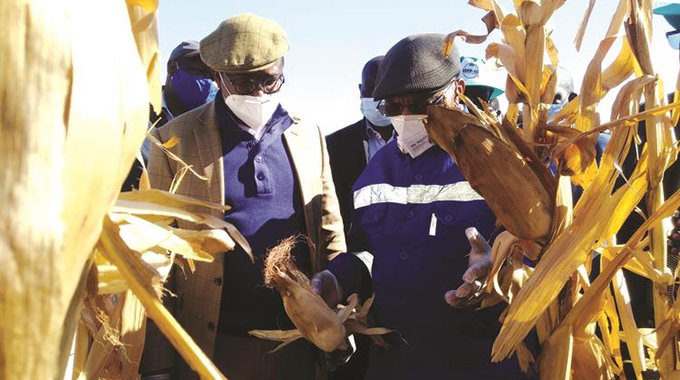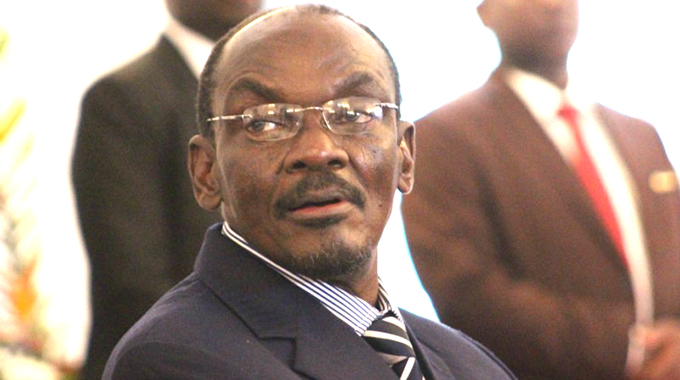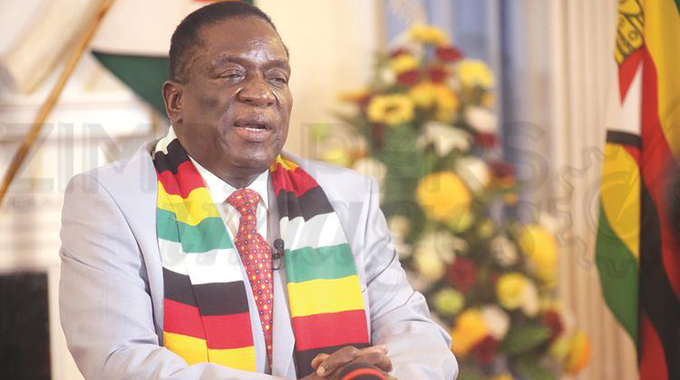We can be wheat sufficient, says VP Chiwenga

Patrick Chitumba Midlands Bureau Chief
Vice President Constantino Chiwenga has said there is an increase in land put under winter wheat in the country, a development that will result in being wheat sufficient at the end of the season.
Addressing farmers during a tour of winter wheat projects and to monitor progress on growing of traditional grains at sub-division six of Loozani Farm outside Kwekwe, Vice President Chiwenga urged farmers to take farming seriously to ensure economic development.
The farm is owned by A2 farmer Mrs Tsitsi Mbudzi, who has 40 hectares under wheat and 60 hectares under maize, which is ready for harvesting.
He said if communal farmers with access to water bodies put half a hectare of land under wheat, while A2, A1 and large-scale commercial farmers put more land under wheat, the country would have enough wheat for the baking industry.
“The agriculture sector is a key economic enabler, which propels the generation growth in all sectors of our economy,” said Vice President Chiwenga.
“The sector provides the much-needed household nutrition and the much-needed food security. The production of winter wheat is, therefore, essentially for the country as it provides raw materials for the bread and confectioneries industry.
“In this regard, there is a need for increased investment for the private sector and individual farmers to augment efforts in revamping the sector in this current winter wheat season.”
Government had provided guarantees for 65 000 hectares and the private sector did the same for 15 000 hectares.
This, said VP Chiwenga, was testimony that the country could reduce wheat imports.
He said Government introduced the winter wheat programme to boost local production and reduce reliance on imports.
“In the Midlands province, only 1 500 hectares were being put under winter wheat in previous years, but in this current season, the total production area has increased,” said VP Chiwenga. “It is gratifying to note that Midlands has put 3 000 hectares against the target of 4 500.
“Well done Midlands. This is part of the province’s contribution to the country’s 80 000 hectares.”
Wheat production, Vice President Chiwenga said, was not a privileged business for A2 farmers and large-scale commercial farmers only.
“It can be done by smallholder irrigation schemes,” he said. “It is my sincere hope that other farmers can emulate what we are seeing here. All farmers, as long as you have a piece of land with water nearby, let’s grow wheat.
“It can be half an acre or one acre. If combined, we will meet requirements of our country. Gone are the days when we were beggars. Let’s utilise the land we have.”
Government was looking at improving productivity in the agricultural sector through better extension services, research, mechanisation and irrigation.
Vice President Chiwenga commended the Ministry of Energy and Power Development for putting in place measures to guarantee the availability of power to wheat growing clusters.
Permanent Secretary for Lands, Agriculture, Water and Rural Resettlement Dr John Basera said winter wheat production was looking bright after 32 000 hectares had germinated as at Thursday.
“Last year, the country had only 24 000 hectares of land under winter wheat, meaning we have beaten that record before we calculate all the wheat that has germinated,” he said.
Mrs Mbudzi has been growing maize, wheat and soya beans since 2006 and through her agri-business adventures, she managed to acquire a centre pivot.










Comments